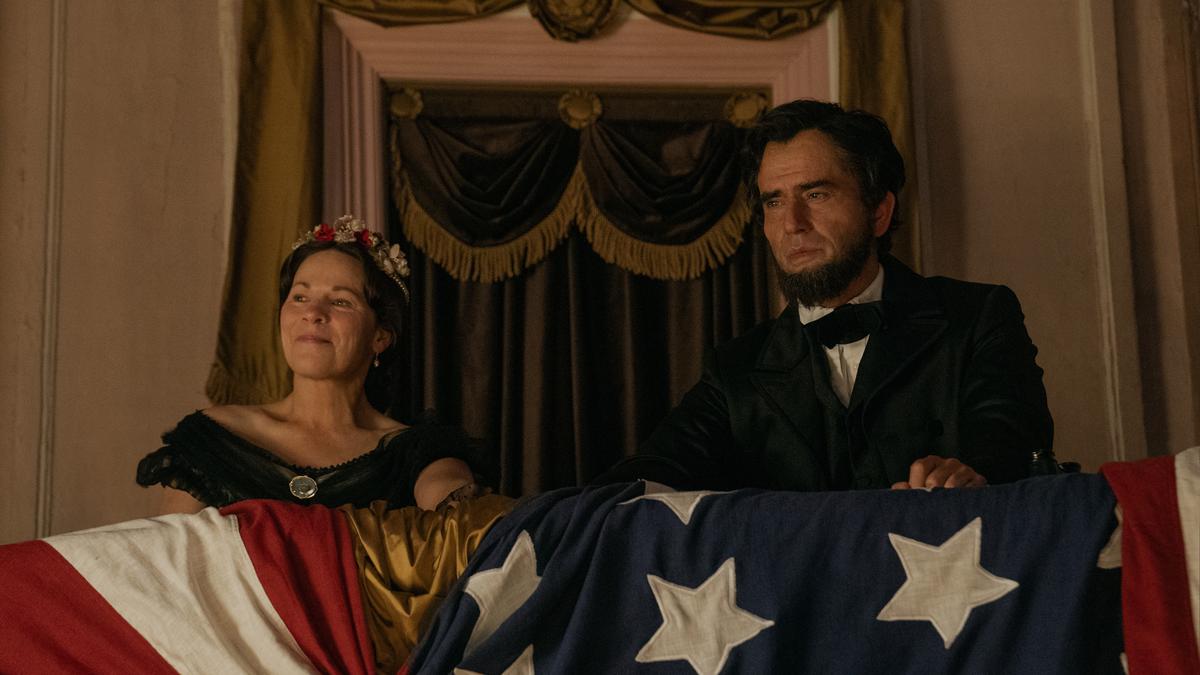
‘Manhunt’ series review: Tired historical thriller fails to pull the trigger
The Hindu
Apple TV+’s ‘Manhunt’ delves into the 12-day chase for Lincoln’s killer, but falls short with lackluster storytelling and historical overload.
Set against the backdrop of one of the world’s most notorious assassinations, Apple TV+’s latest limited series endeavours to unravel the complexities of the 12-day chase for Abraham Lincoln’s killer, John Wilkes Booth. Based on James L. Swanson’s book, Manhunt: The 12-Day Chase for Lincoln’s Killer , it’s a premise brimming with potential but reduced to drab history lessons and drawn out caricatures.
From the get-go, Manhunt builds tension with the (second) most infamous moustachioed villain in modern history, lurking in the shadows — plotting, scheming and touting the odd Hamlet. The intensity builds to a premature crescendo as Booth’s bullet shatters the silence of the theatre, a fleeting moment of genuine exhilaration in an otherwise lacklustre narrative.
The decision to front-load the assassination rather than build towards it robs the story of its potential for suspense, resulting in a narrative that feels as floundering as Booth’s ill-fated escape. Director Carl Franklin’s initial episodes offer a glimmer of hope, infusing the narrative with a foreboding dread. But as the series progresses, this tension quickly dissipates, leaving us with little more than a crash course on the evils of the American Confederacy.
At the centre of the drama is Edwin Stanton, Lincoln’s secretary of war, portrayed with steely resolve by Tobias Menzies. Stanton’s tireless pursuit of Booth should be the driving force of the series, yet despite desperate attempts at humanising his workaholism under the banner of carrying forward Lincoln’s compassionate legacy, the writing fails to flesh the underlying white saviour out of his character.
Anthony Boyle’s Booth definitely stands as a “symbol” of intrigue amidst the series’ missteps. While Boyle masterfully embodies Booth’s vanity, offering a nuanced portrayal of a man consumed by his own mythos, the writing inevitably reduces Booth to a cliche with his fragile masculinity fanning the flames of his delusions of grandeur.
And then there’s Hamish Linklater’s Lincoln. With each exaggerated gesture and stilted line delivery, Linklater’s performance feels distracting and pulls you away from the story. It’s a real pity, considering his effort, but unsurprising given the mammoth task of following in the footsteps of one of the most important men in modern history: three-time Academy Award-winner Daniel Day Lewis.
Manhunt inescapably falters under the weight of its own historical gravitas. Historical accuracy is all well and good, but the series seems hell-bent on cramming every period detail down our throats. The incessant barrage of period minutiae and exhaustive expositions on political dynamics overwhelms the narrative, detracting from its momentum.





















 Run 3 Space | Play Space Running Game
Run 3 Space | Play Space Running Game Traffic Jam 3D | Online Racing Game
Traffic Jam 3D | Online Racing Game Duck Hunt | Play Old Classic Game
Duck Hunt | Play Old Classic Game











